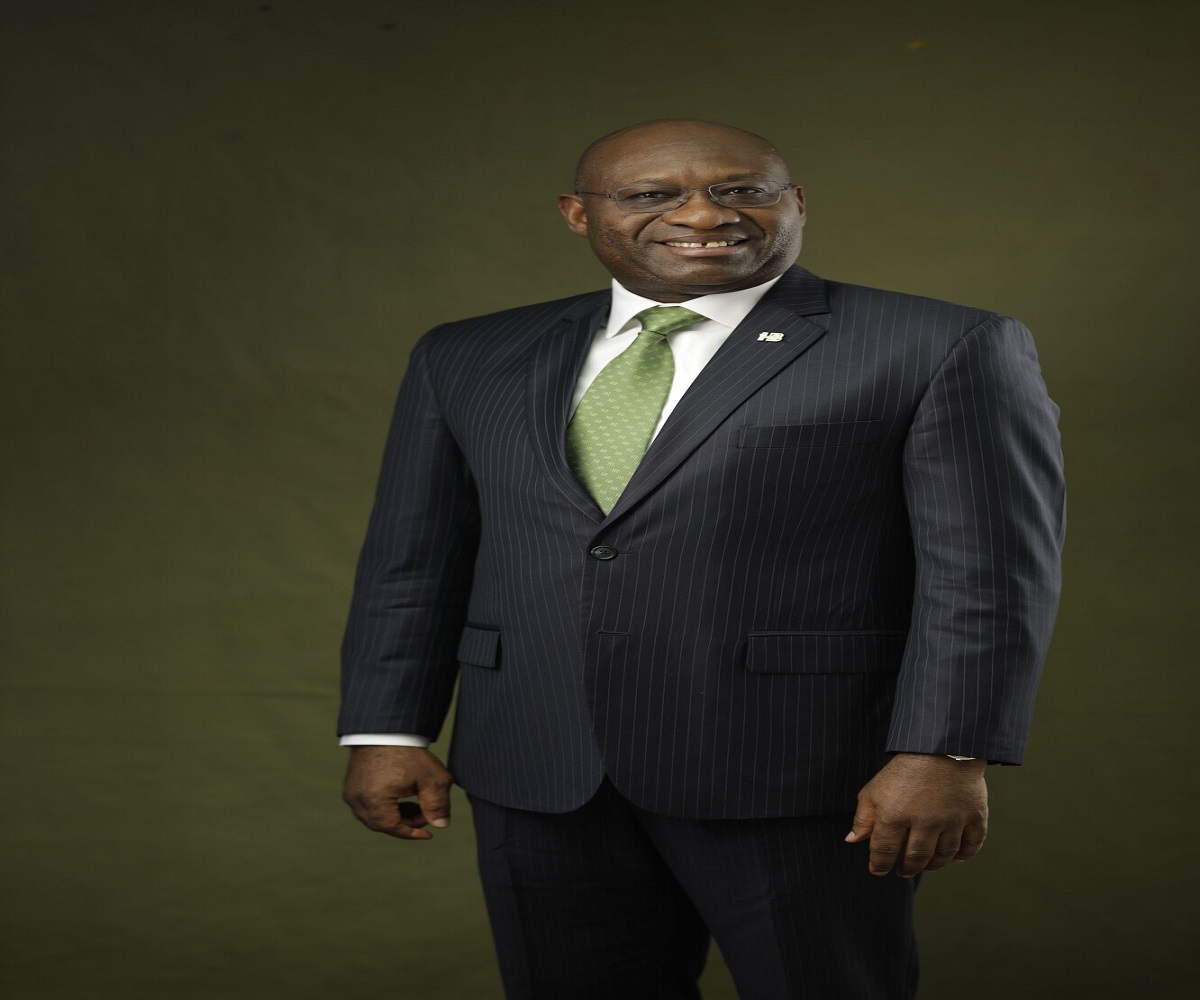E-Financial
Heritage Bank, LCFE, others Unlock N445trn Commodities Ecosystem for Economic Industrialization

Lagos Commodities and Future Exchange (LCFE), Heritage Bank Plc, Capital Market players and other stakeholders have unlocked the $1trillion (N445trn) commodities ecosystem as avenue to diversify the economy from a crude oil dependent economy to other critical economic sectors.

This was revealed at the historic Commissioning Ceremony and Official Launch of Lagos Commodities & Futures Exchange, with the theme, “New Order, Driving Nigeria’s Economy Through the Commodities Ecosystem,” on Thursday in Lagos.
This feat, according to key stakeholders will catalyze and transform the Nigerian economy to create value, wealth restore growth and build global competitive economy.
Giving his Goodwill message, the MD/CEO of Heritage Bank, Ifie Sekibo, specifically stated that as the Lead settlement bank in partnership with key stakeholders that are critical to the success of this project, it considered the launch of LCFE as huge potential to unlock the opportunities and wealth of the four asset classes- Agriculture, Solid Minerals, Oil and Gas and Currencies.
“I believe that this is the beginning of how we are going to possibly create values in areas that hitherto we have taken for granted. First thing it will bring about is sustainable commodity trading ecosystem, being a catalyst for capital formation, unlocking the long-time financing for the solid mineral and mining space. A frontline push to diversify the economy of this country from oil,” he emphasized.
Hinting on the partnership, Sekibo explained, “the Collaboration between Heritage Bank and LCFE is designed to align the market to transparent price discovery, standardised platform for trading of commodities across defined asset classes and straight through processing to settlement.”
He affirmed that the promotion of investment in commodities ecosystem by Heritage Bank in partnership with LCFE in its various assets traded Agriculture, Solid Minerals, Oil and Gas and Currencies would increase liquidity support from local commodity exportation to boost the race for the $200billion in FX repatriation and reduce the pressure on exchange rate.
Sekibo added that the partnership was one of the many initiatives of the bank’s foundational objectives of wealth creation, preservation, and transfer across generation.
In his address, the Governor of Lagos State, Babajide Sanwo-Olu who appreciated the efforts of all the stakeholders, stated that the successful commissioning of LCFE will better fulfil the catalysts of growth which is to attract cutting-edge ideas and innovation and improve the inflow of financial transactions and great ideas that will enable businesses to flourish.
This, according to him, will improve the living environment, for businesses, and for the investments in Lagos and our country.
Akin Akeredolu-Ale, MD/CEO, LCFE said, “As we are all aware, the Capital size of the Nigerian Commodities Ecosystem is so large and like I have said in the past, it can be considered as a $1trillion economy cutting across Agriculture, Oil and Gas, Solid Minerals and Currency. With a capitalisation this large, it was important to lay the right foundation as the means determined the end for us and we could not afford, not to get it right.”
He said the Exchange identified that Nigeria’s crude oil has been traded extensively outside the country in Switzerland and other areas by large scale trading companies.
“Nigeria produces only high value, low sulphur content, light crude oils – Antan Blend, Bonny Light, Bonny Medium, Brass Blend, Escravos Light, Forcados Blend, IMA, Odudu Blend, Pennington Light, Qua-Iboe Light and Ukpokiti This makes Nigeria’s crude very desirable.
“By way of sovereignty, our oil and gas products should be traded and priced within Nigeria. 400,000bbls on arbitrage can be traded on the LCFE. Whenever prices drop, we can plan for our trades in the future. This will boost the balance sheet, enhance liquidity, and shore up the value of the Naira; External reserve will become both external and internal reserves. The Exchange is currently setting up frameworks and structures to achieve this and more details will unfold in due time,” Akeredolu-Ale explained.
He noted that one of the asset classes in which LCFE has made tremendous giant strides in is the Solid Minerals asset class.
“We noticed there was an urgent need for structure, regulation, funding, and data collation in this sector and this is where Commodities Exchanges play strategic roles in introducing structure to this ecosystem,” he stated.
E-Financial
Nigerian Banks End Years of Embargo, Resume Intl Transactions on Naira Cards

Nigerian banks have resumed international transactions on naira-denominated debit cards, marking a significant shift in banking operations for customers who rely on foreign payments.

This is coming nearly three years of suspension.
United Bank for Africa (UBA) and Wema Bank, in separate communications to their customers, announced the restoration of international payment services on their naira cards.
In a notice to its customers, UBA said the reactivation of international transactions on its premium naira cards aligns with its commitment to delivering improved and seamless banking experiences.
“We are pleased to inform you that all UBA Premium Naira Cards, including Gold, Platinum, and World variants, are now enabled for international transactions,” the bank stated.
“This means you can now use your Premium Naira Card for global payments — including online shopping, POS, and ATM transactions — with ease and flexibility. If you haven’t used your card recently, now is a great time to rediscover the convenience and prestige that comes with being a UBA premium cardholder.”
Similarly, Wema Bank announced that its customers can now make dollar payments on international platforms using their naira Mastercards.
“Your Wema Naira Mastercard just went global!” the bank said. “Now you can pay in dollars on all your favourite international platforms — Amazon, eBay, AliExpress, Netflix, Spotify, YouTube.”
The development marks a major relief for Nigerian customers who have had to rely on dollar cards or alternative payment methods since most banks suspended international usage of naira cards in 2021 due to foreign exchange scarcity.
E-Financial
Flutterwave Secures 20 more US Money Transmitter Licences

Flutterwave, Africa’s leading payments technology company, today announced the relaunch of its flagship remittance solution, Send App, across U.S. states following its newly acquired Money Transmitter Licences (MTLs).

This comes after Flutterwave secured 20 additional MTLs in the U.S., adding to the 14 licenses the brand has held since 2023.
Altogether, this achievement raises Flutterwave’s total number of direct licenses to 34, allowing the company to operate across many U.S. states and territories without partners or intermediaries.
Users in the U.S. can now send money to Nigeria, Ghana and Egypt, unlocking new remittance corridors that were previously unavailable.
Alongside this expansion, the onboarding process has been streamlined with a quick ID check, making it faster and easier for new users to get started.
Additional improvements include optimised payment support for US-issued Visa and Discover cards, enhanced security measures to safeguard transactions and maintain compliance, and improved in-app flows for a simpler, more efficient sending experience.
This return also highlights Flutterwave’s commitment to delivering a seamless, secure, and regulatory-compliant user experience for all Send App customers in the U.S. Users can now send money from DC, Georgia, Maryland, North Carolina, Michigan, South Carolina, Tennessee.
Other U.S. states and territories where Send App by Flutterwave supports outward remittances include Alaska, Arizona, Arkansas, Delaware, Idaho, Illinois, Indiana, Iowa, Louisiana, Maine, Minnesota, Mississippi, and Missouri, Nebraska, New Hampshire, New Mexico, North Dakota, Oklahoma, Oregon, Puerto Rico, Rhode Island, South Dakota, Utah, Washington, West Virginia, Wisconsin, and Wyoming.
Commenting on the relaunch, Olugbenga “GB” Agboola, Flutterwave Founder and CEO, said, “By expanding our reach and enhancing our services, we are empowering millions of Africans in the U.S. to maintain strong financial ties with their home countries, support their families, and contribute to economic development across the continent. Additionally, we are staying true to our core mission of bridging Africa with the global economy and vice versa.”
Earlier this year, Flutterwave integrated Swap into Send App for seamless FX transactions and strengthened its services in Ghana by securing approval for inward remittance from the Bank of Ghana.
E-Financial
Court Affirms NIBSS Authority to Manage BVN

Federal High Court in Abuja on Friday affirmed the authority of the Nigeria Inter-Bank Settlement System (NIBSS), to manage the Bank Verification Number (BVN), database across the country, in line with the Central Bank of Nigeria (CBN), Act and other relevant banking laws.

This is according to a judgment delivered by Justice James Omotosho on Friday.
Wolemi Esan, senior advocate of Nigeria, NIBSS’s counsel, and Kofo Abdulsalam-Alada, lead counsel for the CBN, among others, had sought a restraining order to prevent any institution in Nigeria from challenging the agency’s statutory authority to maintain and manage the BVN database.
This comes as NIBSS had alleged that Digital Rights Lawyers Initiative filed multiple suits, either directly or through proxies, challenging its authority to manage the BVN database and claiming that such management violates constitutional privacy rights.
However, Justice Omotosho, delivering his judgment, said the BVN does not infringe on the constitutional right to privacy.
“The initiative does not infringe on the constitutional right to privacy but rather serves as a necessary tool for safeguarding public interest and enhancing financial security.
“NIBSS has the power to manage the BVN,” the judge said, citing relevant CBN laws.
“The court grants the reliefs of NIBSS as prayed,” he stated.

 Telecom2 days ago
Telecom2 days agoMTN Nigeria Debuts Game-Changing CPaaS Platform at NextNow Forum

 Telecom3 days ago
Telecom3 days agoNCC Approves MTN, 9Mobile Roaming Collaboration Deal

 E-Financial2 days ago
E-Financial2 days agoNAICOM Issues New Licenses to SanlamAllianz Life, General Insurance

 News2 days ago
News2 days agoAMCON Confirms ₦100Bn Sale of Ibadan DisCo Amid Legal Disputes

 E-Financial2 days ago
E-Financial2 days agoGTCO to Become First Nigerian Bank to List on London Stock Exchange

 E-Business2 days ago
E-Business2 days agoDomain of Deception as Attackers Deploy Spyware Under Guise of Legal Threats

 E-Financial3 days ago
E-Financial3 days agoWorld Bank Approves Extra $65m for Nigeria’s SPESSE

 E-Financial3 days ago
E-Financial3 days agoEcobank Taps Google Cloud to Deepen Financial Inclusion




























